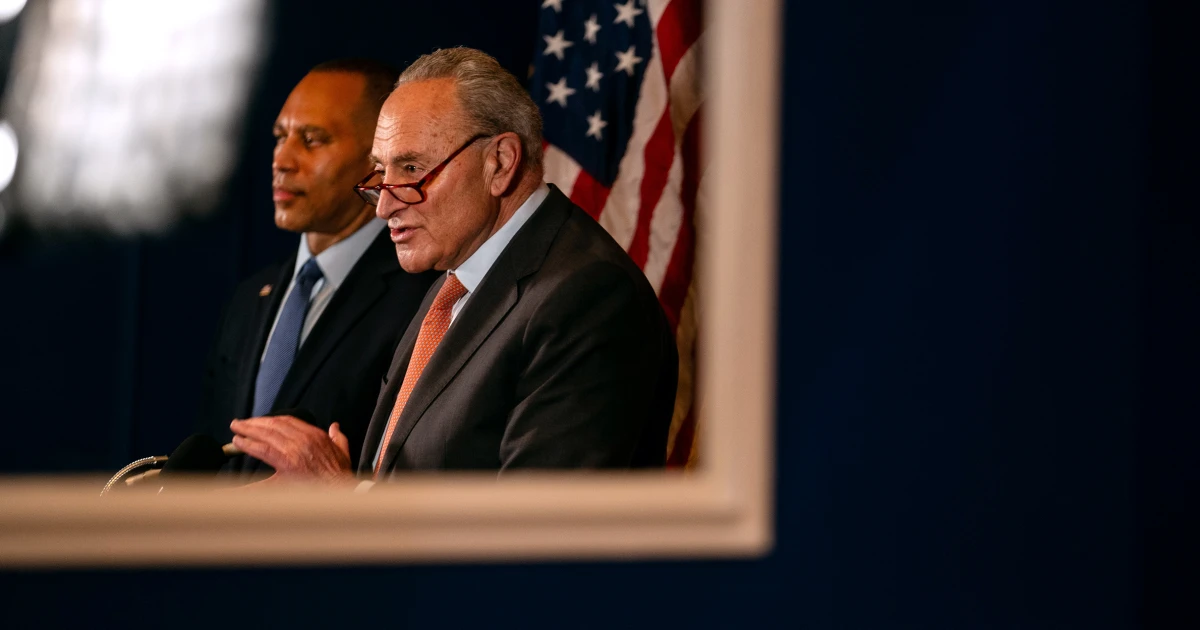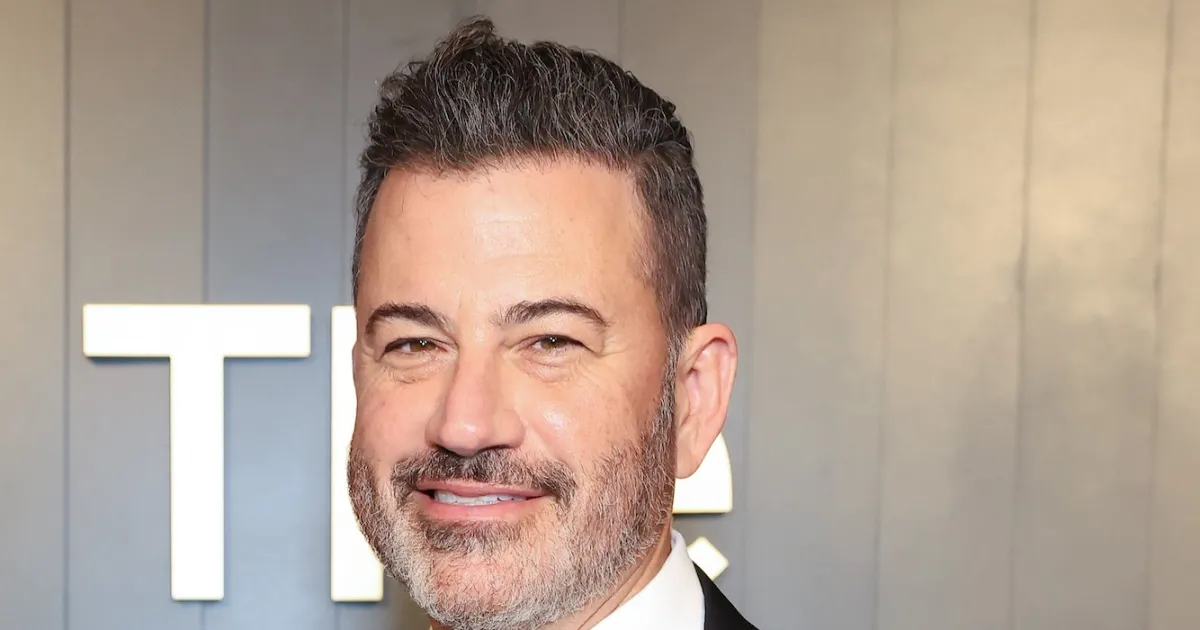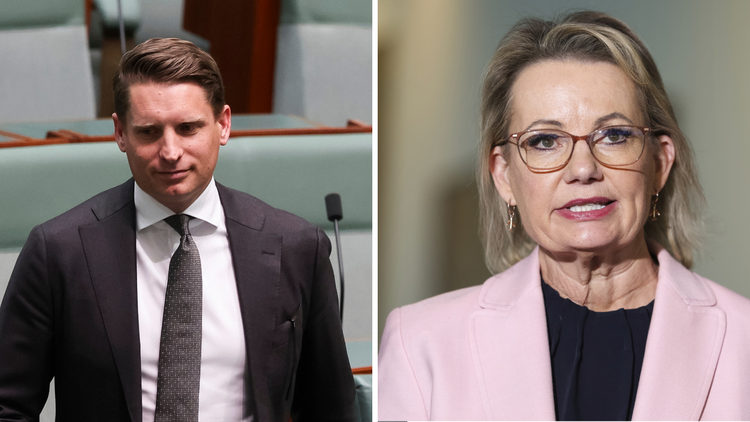
Welcome to the online version of From the Politics Desk, a newsletter that brings you the NBC News Politics team’s latest reporting and analysis from the White House, Capitol Hill and the campaign trail.
In today’s edition, we explore how angst from the Democratic base is putting pressure on party leaders as they navigate the government shutdown battle and key primaries in next year’s midterms.
Sign up to receive this newsletter in your inbox every weekday here.
— Adam Wollner
Democrats leaders face pressure to not cave in shutdown fight
By Jonathan Allen, Natasha Korecki and Sahil Kapur
With a looming government funding deadline, the biggest sin in the eyes of the Democratic Party’s base, according to party officials and activists, would not be losing to President Donald Trump in a shutdown battle. It would be refusing to fight.
“They’re desperate to see from Democrats some sign that they understand how serious, how damaging, how dangerous things are and have gotten, and they’re prepared to use the tools and the leverage they’ve got to fight back,” said Leah Greenberg, co-executive director of Indivisible, a progressive grassroots group that has thousands of chapters nationwide.
In March, Senate Minority Leader Chuck Schumer, D-N.Y., declined to use that leverage — the Democratic minority’s ability to block legislation with a filibuster — and allowed a Republican-written government funding measure to become law.
Now, Schumer has promised this time will be different.
And with federal agencies set to run out of money at 12:01 a.m. Wednesday, the Democratic base is putting more pressure on him to either win concessions from Trump — at a minimum, an extension of expiring Affordable Care Act subsidies that limit the costs of health insurance for millions of Americans — or let a shutdown happen.
Trump has refused to negotiate with Democratic leaders, and his budget director, Russ Vought, threatened this week to fire thousands of federal workers if Democrats don’t accept a GOP-written bill that would fund the government into November.
The move raised the stakes of a shutdown for Democratic lawmakers, many of whom are advocates for the federal workforce. Trump is already pointing his finger at Democrats, who would need to provide a handful of votes in the Senate for any funding bill to make it to his desk.
For Schumer and House Minority Leader Hakeem Jeffries, D-N.Y., the shutdown standoff marks their biggest test yet in the second Trump administration: Can they use the limited power they have to force the Republican trifecta to address some of their policy goals? Polls show that a growing number of Democratic voters are disenchanted with their party and want them to show a more confrontational — and less compromising — posture toward Trump.
Read more →
Democratic anger at their own party fuels 2026 primaries
By Sahil Kapur and Bridget Bowman
When Michigan state Sen. Mallory McMorrow decided in February that she wanted to run for an open U.S. Senate seat, she conveyed her intentions to the Democratic Senatorial Campaign Committee. But the committee asked her to hold off, according to three sources familiar with the conversations.
In that call and subsequent ones, some of which took place at the staff level, DSCC officials didn’t explicitly ask her not to run, but “they were slow-walking,” said one source who discussed the private conversations on condition of anonymity. “It was, ‘Can you wait a little longer, can you wait?’”
In early April, McMorrow defied their wishes and launched her campaign, inveighing against “the same old crap in Washington” and highlighting polls that showed the Democratic Party’s approval rating at an all-time low.
“We need new leaders,” she said in her launch video. “Because the same people in D.C. who got us into this mess are not going to be the ones to get us out of it.”
Whether she intended it or not, the 39-year-old McMorrow started a trend of Democratic outsiders end-running party leaders to launch their campaigns, sometimes in explicit opposition to them. The movement is fueled by a crisis of confidence among Democratic voters in their own party, which is giving encouragement to the types of nontraditional candidates who have been walloped by leadership-aligned rivals in the past.
Altogether, ahead of the 2026 midterm elections, the moves have created a number of crowded and competitive-looking Democratic Senate primaries — contests that have often seen party leaders leap in to anoint favorites in recent years. Democratic angst following the loss to President Donald Trump last year has contributed to the trend in at least five races that could determine the majority, from core battlegrounds like Michigan and Maine to long-shot targets like Iowa and Texas.
The DSCC has not endorsed in any competitive Senate primaries so far, though Sen. Kirsten Gillibrand, D-N.Y., who chairs the committee, has not ruled out doing so.
Read more →
That’s all From the Politics Desk for now. Today’s newsletter was compiled by Adam Wollner and Owen Auston-Babcock.
If you have feedback — likes or dislikes — email us at politicsnewsletter@nbcuni.com



